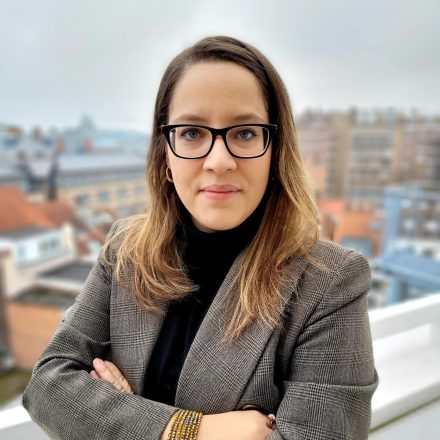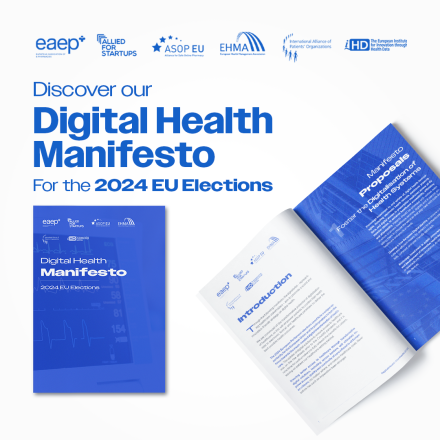This website uses cookies so that we can provide you with the best user experience possible. Cookie information is stored in your browser and performs functions such as recognising you when you return to our website and helping our team to understand which sections of the website you find most interesting and useful.
Strengthening the resilience and skills of the future health workforce
22 September 2022
A robust and competent workforce is key to achieving optimal health systems. Proper management of human resources can support the delivery of health services. This is why EHMA got involved in the EU Health Policy Platform Thematic Network on ‘Profiling and training the healthcare workforce of the future’, then transformed into a formal Stakeholder Network of the European Commission. As part of this initiative, together with HFE, we produced the report ‘Essential skills for a resilient and effective European health workforce‘ endorsed by over 60 organisations members of the network. The report aims to trigger change on the ground by raising awareness on the existing and foreseeable skills gaps of the European health workforce in the context of current trends and challenges. The report was produced following an extensive literature review and consultation process that investigated the skills needed for a healthcare workforce that is resilient, effective and future-oriented.

Qualified, trained and skilled healthcare professionals are key to building resilient health systems able to cope with current challenges such as the green and digital transition, workforce shortages, ageing societies, and a rising number of non-communicable diseases. The report of the EU HPP Stakeholder Network on ‘Profiling and Training the Healthcare Workforce of the Future’ on essential skills for a resilient and effective European health workforce includes recommendations addressing policy-makers at all levels. It aims to trigger change on the ground and raise awareness of the existing and foreseeable skills gaps of the European health workforce in the context of visible trends and challenges.
The report identifies four skill areas that are pivotal to delivering better, more resilient, sustainable and effective person-centred care.
- Digital, eHealth and AI skills;
- Patient-centred communication skills;
- Interdisciplinary and coordination skills; and
- Green skills.
Any concrete actions around these four areas should be preceded by a large-scale and comprehensive data collection about health workforce skills needs. Any actions to implement such recommendations should be supported by an overall strategy. To secure long-term sustainability, it is not only the healthcare professionals but also educators who should be upskilled and reskilled. Additionally the educational and training institutions should be equipped with the necessary infrastructure and knowledge to provide courses addressing large audiences in a tailored manner. Last but not least, top-down measures such as education reforms and prioritisation of health workforce skills development on the political agenda should be combined with a continuous engagement of healthcare professionals in monitoring and evaluating their performance and eventually developing training materials.

THE REPORT
The recommendations for each of the four areas include:
- Digital skills: Upscale and integrate digital competencies into health professionals’ education and training, lifelong learning, continuing professional development, and staff exchange programmes.
- Communications skills: Incorporate effective patient-centred communication – especially with vulnerable groups and older persons – in training programmes and academic curricula.
- Interdisciplinary and collaboration skills: Assess the needs of educators delivering interdisciplinary and collaboration skills development, while focusing on adaptability in healthcare professionals’ education programmes.
- Green skills: Promote good practices and raise awareness of what green skills mean and what new job positions will be needed, while enhancing climate literacy and climate health literacy.
Recent News

ENVI Committee voting on the EU Pharmaceutical Strategy

Appointment of new Interim Executive Director

Our Digital Health Manifesto for the European elections 2024
What our Members say
I have been active in EHMA since the first years of the '90s and I have seen its evolution from a small association of members interested in sharing knowledge on health management practices to the current status of reference and advisory key player for EU, health systems and organisations, stakeholders associations, industry and universities. EHMA is now a unique knowledge hub, policy advisor, community of practice and network of best in class organisations involved in health policy and management. A place where health managers can build their competences, policy-makers and stakeholder associations envision how to implement and sustain change through health management, industry leaders understand how to engage more effectively with health organisations and systems. The right place to nurture and grow health management capabilities and capacity for every stakeholder of health systems.
Prof. Federico Lega, University of Milan, Italy
Health management has a crucial function in shaping public health and health system challenges. The Medical University of Varna, Bulgaria had success in collaborating with EHMA on EU-funded projects that has resourced us to create new health management competencies for the future workforce. In addition to all classical definitions, health management is a science dealing with individuals, groups, and society at large. It is an art contributing to the beauty of our lives and an interactive communication process at all levels of institutions and human energy. I have also had the pleasure to chair the South Eastern European Special Interest Group which gives members a space to discuss and tools to address how health systems are managed in our regions.
Prof. Todorka Kostadinova, Medical University of Varna, Bulgaria
I enjoy the high level of interaction and engagement in EHMA’s activities, in particular during the annual conference where the panel discussions are rich and well prepared. As a hospital manager and professor of health management, EHMA motivates and inspires me to be creative. You go back home feeling energised from seeing old friends and making new connections, as well as being convinced of serving as EHMA’s ambassador. It’s a strong feeling of interdisciplinary engagement, but it also feels like being part of family-like community.
Prof. Sandra C. Buttigieg, University of Malta, Malta
EHMA is a pre-eminent organisation for everyone working in planning, managing and delivering health services across Europe. As a long standing member of EHMA I have always been impressed by the vibrant community of managers, researchers and academics it has created and by the many opportunities for sharing knowledge and funding opportunities it has brought to its members. Its international scope is impressive and its impact is often felt in management and research across European and national health systems.
Prof. Axel Kaehne, Edge Hill University, UK
Health workforce has become more essential in operating, managing and maintaining health systems lately, particularly in crisis and emergency situations. European healthcare professions and the workforce need to be high on the agenda of managers and decision makers. The Health Services Management Training Centre, Semmelweis University in Hungary is a longstanding EHMA member, because it connects us with collaborators and experts, with whom we can have complex debates, from whom we can learn and at the end find solutions in various challenging fields of healthcare management.
Dr Eszter Kovács, Health Services Management Training Centre, Semmelweis University, Hungary
As a hospital administrator and health management professor, I see on a daily basis that the healthcare challenges require talented and skilled managers to transform it. the EHMA membership has been beneficial to bring healthcare management research and education to the demanding healthcare services world, promoting healthcare management competencies and knowledge creation.
Dr Alexandre Lourenco, APAH - Association of Portuguese Hospital Managers, Portugal
Many healthcare systems in Europe and beyond are facing similar challenges which require innovative and creative solutions. EHMA’s annual conference, webinars, Programme Directors’ group and other activities and resources provide incredible opportunities for networking, connecting and sharing experiences. A distinct feature of EHMA is the diversity of members with representation from many countries, sectors and different communities of practice – academic, policy-makers, practitioners, managers, leaders and students. The annual conference is a highlight in the calendar year, offering a friendly, fun and learningful environment for emerging and established members to engage, collaborate and meet up with old and new friends. I am proud to be a member of the EHMA Board.
Prof. Ann Mahon, University of Manchester, UK
Society evolution, pandemics and ageing modify health needs. So, health policies and services are to change dramatically. EHMA, through webinars, workshops and annual conference provides an excellent insight to a professional changing world, favouring closeness to management innovation and the protagonists of these changes. As a primary care services’ manager, participating in EHMA activities is really worth it and allows to involve oneself in the innovation processes.
Dr Antoni Peris Grao, Consorci Castelldefels Agents de Salut (CASAP), Spain